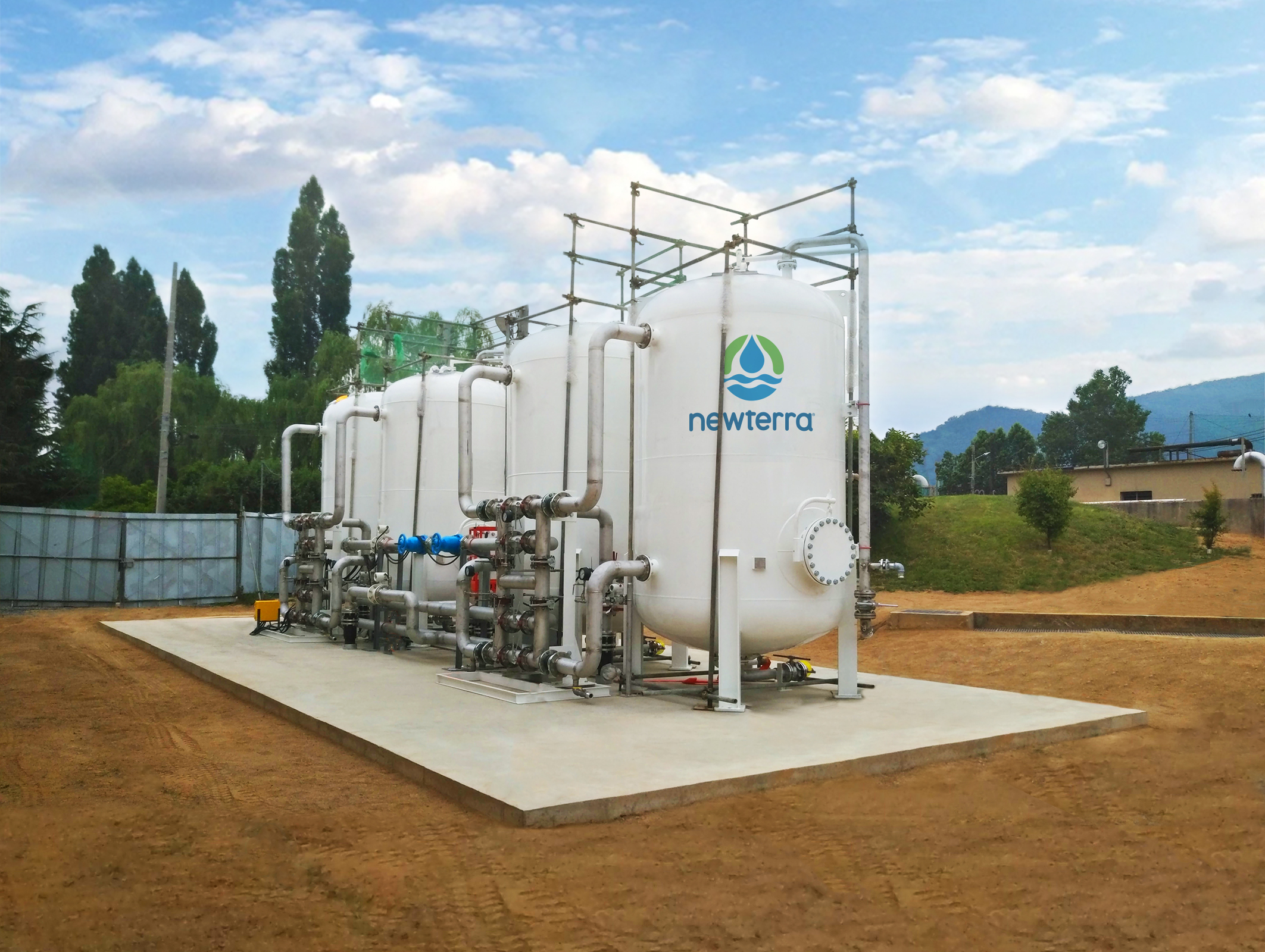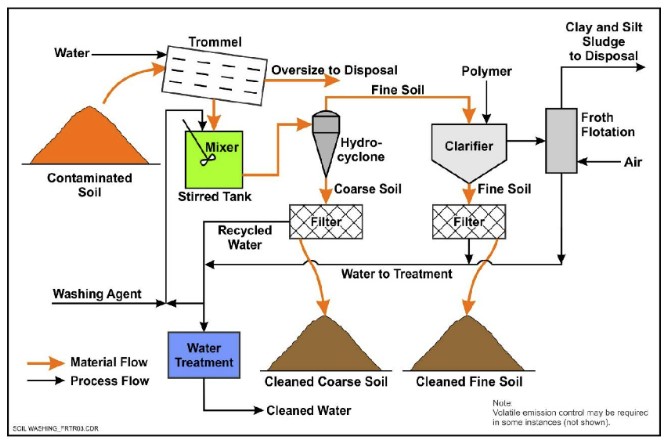How PFAS Treatment Guarantees Tidy and Sustainable Water
The visibility of PFAS, typically referred to as "permanently chemicals," poses substantial challenges to water quality and public wellness. Advanced treatment modern technologies, consisting of activated carbon adsorption and membrane purification, have actually become effective services to minimize these pollutants. By employing these approaches, neighborhoods can not only attain cleaner water but also foster sustainable practices that secure communities. Nevertheless, the ramifications of these therapies prolong past instant health advantages; they increase essential concerns concerning long-lasting water management techniques that need to be addressed to guarantee a resistant future. What does this mean for our technique to water sustainability?

Comprehending PFAS Contamination
PFAS, or per- and polyfluoroalkyl compounds, have become a considerable environmental problem because of their prevalent occurrence and perseverance in the atmosphere. These synthetic chemicals have been used in different industrial applications and consumer items, including non-stick pots and pans, water-proof clothes, and food packaging, due to their unique residential or commercial properties such as water and grease resistance.
The contamination of soil and water resources by PFAS takes place mainly via commercial discharges, firefighting foam usage, and seeping from garbage dumps. pfas management. When launched, these materials are immune to deterioration, leading to their accumulation in the atmosphere. This determination elevates critical concerns, as PFAS can take a trip fars away through groundwater and surface area water supply, impacting alcohol consumption water materials and ecological communities

Health And Wellness Threats of PFAS
The persistence of PFAS in the setting elevates considerable wellness concerns for people exposed to these substances. Study has linked PFAS direct exposure to different negative wellness effects, consisting of immune system dysfunction, liver damages, and raised danger of particular cancers cells.
The ubiquity of PFAS in customer items, such as non-stick pots and pans, water-repellent materials, and food packaging, more intensifies the threat of exposure. Drinking water polluted with PFAS is a substantial concern, as these chemicals can leach right into groundwater resources. Vulnerable populaces, consisting of youngsters and those living near industrial websites, might face increased threats due to their establishing systems and possible for greater direct exposure degrees.
As understanding of these wellness dangers remains to expand, governing agencies are beginning to establish standards for PFAS degrees in alcohol consumption water. Public health and wellness campaigns are important to minimize direct exposure and secure areas from the long-lasting effects of these unsafe compounds.

Ingenious Therapy Technologies
Just how can we properly tackle the difficulties positioned by PFAS contamination in water sources? Innovative treatment innovations are becoming crucial options in the mission for clean water. These approaches concentrate on the elimination or destruction of per- and polyfluoroalkyl materials (PFAS), which are notorious for their perseverance in the environment.
One promising technique is adsorption utilizing sophisticated materials, such as turned on carbon and ion exchange materials. These products have shown efficiency in recording PFAS particles from water. One more notable modern technology is membrane filtration, which makes use of nanofiltration and reverse osmosis to separate contaminants at the molecular degree, hence supplying an obstacle versus PFAS.
Furthermore, advanced oxidation processes (AOPs) utilize strong oxidants to damage down PFAS compounds into harmless by-products. This technique is particularly reliable for treating very contaminated water resources. Bioremediation techniques, utilizing specific bacteria, are likewise being explored to deteriorate PFAS.
As research proceeds, crossbreed systems that integrate numerous innovations may use boosted performance, attending to the complexities of PFAS contamination. The pfas waste management advancement and application of these cutting-edge treatment modern technologies are important actions toward guaranteeing the safety and security and sustainability of our water sources.
Benefits of Effective PFAS Treatment
Efficiently treating PFAS contamination in water sources substantially improves public wellness and environmental security. PFAS, frequently referred to as "forever chemicals," are immune to degradation and can build up in the human body, bring about significant wellness dangers such as cancer, liver damages, and body immune system disorder. By carrying out efficient treatment methods, neighborhoods can reduce exposure to these damaging substances, inevitably enhancing the health results of their populations.
Additionally, effective PFAS therapy adds to the preservation of local environments. Infected water can detrimentally influence aquatic life and interfere with the fragile balance of neighborhood habitats. By making certain tidy water, therapy procedures protect biodiversity and maintain ecological integrity.
Furthermore, effective PFAS remediation can foster public confidence in water quality. When communities are guaranteed that their alcohol consumption water is devoid of hazardous contaminants, it advertises a sense of safety and wellness. This depend on is vital for neighborhood engagement and support for ongoing water administration efforts.
Future of Water Sustainability
In the middle of expanding concerns concerning water high quality and shortage, the future of water sustainability depends upon innovative techniques and collective efforts. As neighborhoods face the looming dangers of impurities like PFAS, the development of advanced therapy innovations is vital. These technologies not just focus on the elimination of hazardous materials but additionally promote the reuse and recycling of water, thus decreasing overall demand.
In addition, effective water governance plays an essential function in ensuring sustainable techniques. Policymakers must integrate scientific study with governing frameworks to establish clear standards for water use and therapy. Stakeholder interaction, consisting of regional neighborhoods and markets, fosters a feeling of common duty and motivates lasting methods throughout different industries.
Financial investment in infrastructure is also vital; upgrading aging systems to integrate contemporary filtration and purification approaches can substantially boost water quality. Accepting green innovations, such as all-natural purification systems, can give eco-friendly solutions.
Ultimately, the future of water sustainability depends on a holistic strategy that incorporates modern technology, plan, and area involvement. By focusing on these components, we can secure our water resources for generations ahead, guaranteeing tidy and sustainable water for all.
Verdict
In conclusion, the reliable therapy of PFAS is crucial for making certain tidy and lasting water. Eventually, robust PFAS treatment strategies add to long-lasting resilience in water management, cultivating public depend on in water high quality and promoting sustainable practices.